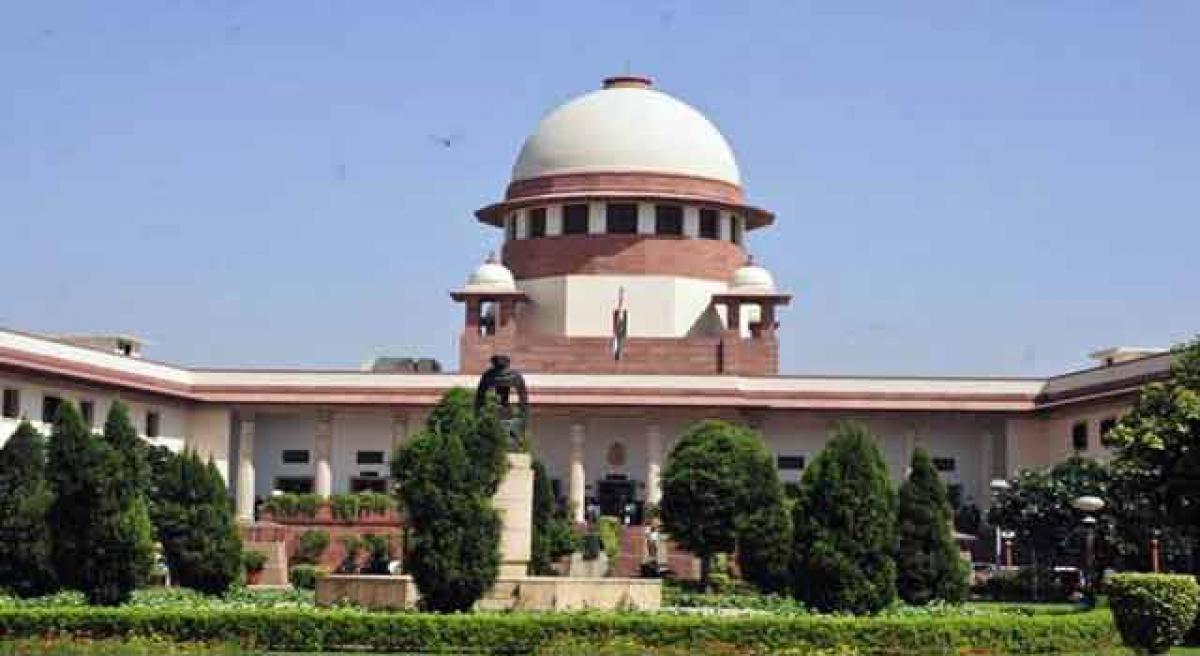Live
- Job mela at Masab Tank tomorrow
- New toilets facilitated for MPP school students
- Steps to safeguard natural springs gain momentum
- RWAs want officials to clear fog over SCB-GHMC merger
- Tanks, canals remain neglected despite execution of MGNREGS works
- BRS to celebrate Deeksha Diwas on Nov 29, Dec 9
- NCC Day grandly celebrated at SITAM
- CITU demands rollback of strategic sale of VSP
- 7-Year-old girl sexually assaulted in Tirupati
- PM Modi highlights govt's efforts to make Odisha prosperous and one of the fastest-growing states
Just In

A closer look at the series of judgments by the Supreme Court of India on the Uttarakhand political impasse reveals that its prime concern seems to be ensuring that the floor test takes place without any impediments.
A closer look at the series of judgments by the Supreme Court of India on the Uttarakhand political impasse reveals that its prime concern seems to be ensuring that the floor test takes place without any impediments.
The court refused to provide any relief to the disqualified Congress legislators. The defected MLAs would now be away from the crucial voting in the legislative Assembly today to ascertain whether or not the ousted Chief Minister Harish Rawat enjoys the confidence of the House.
The court is thus unconcerned with the developments taking place outside the constitutional realm, however real and relevant they may be. The Speaker is constitutionally empowered to be the judge on the questions of the application of the anti-defection law enshrined in the Tenth Schedule of the Constitution of India.
The Courts cannot intervene unless there is a case of substantial illegality. The BJP’s allegation that the Speaker of Uttarakhand Assembly resorted to a discriminatory treatment of the anti-defection law by disqualifying only the Congress defectors but refusing to act on the BJP defector is a valid criticism.
But, the apex court has to adjudicate on whether this constitutes a case of substantial illegality. For time being, the concern of the court seems to be ensuring that the floor test takes place.
The Court perhaps is not keen on doing anything that vitiates the floor test. Any other judicial pronouncement on the Speaker’s order would have substantially impacted the outcome of the floor test. Thus is the Constitutional sanctity which the highest Court of India ascribes to the floor test to decide whether or not an elected government enjoys the confidence of a legislature.
This is precisely what the apex court‘s constitutional bench said in the historic verdict in the S R Bommai case. By ensuring that the floor test takes place in rather unusual circumstances unheard of in the annals of parliamentary democracy in India, the Supreme Court has ingeminated the validity of the SR Bommai verdict.
The President’s rule is to be kept under abeyance for two-and-a-half hours today to have the floor test. The Supreme Court has found this novel solution through a consensus between the contending parties. Therefore, it’s a settled Constitutional position that the floor test – and the floor test alone – is the basis for deciding the fate of an elected government.
The Central government earlier acted in an unconstitutional manner by dismissing the State government a day before the scheduled floor test. The Supreme Court ensured that this constitutional impropriety is reversed.
The Court’s judgments in no way approve or disapprove the ugly political machinations being indulged in by both Congress and BJP in the last few weeks. The Judiciary in India deals with the questions of law and the Constitution.
The political questions have to be settled only in the people’s court. This is the essence of the separation of powers enshrined in the Constitution of India which is also considered as its basic structure.
The Supreme Court has yet again proved to be the sentinel on the qui vive of the Constitution which cannot be hollowed by political ruses and complots.

© 2024 Hyderabad Media House Limited/The Hans India. All rights reserved. Powered by hocalwire.com







